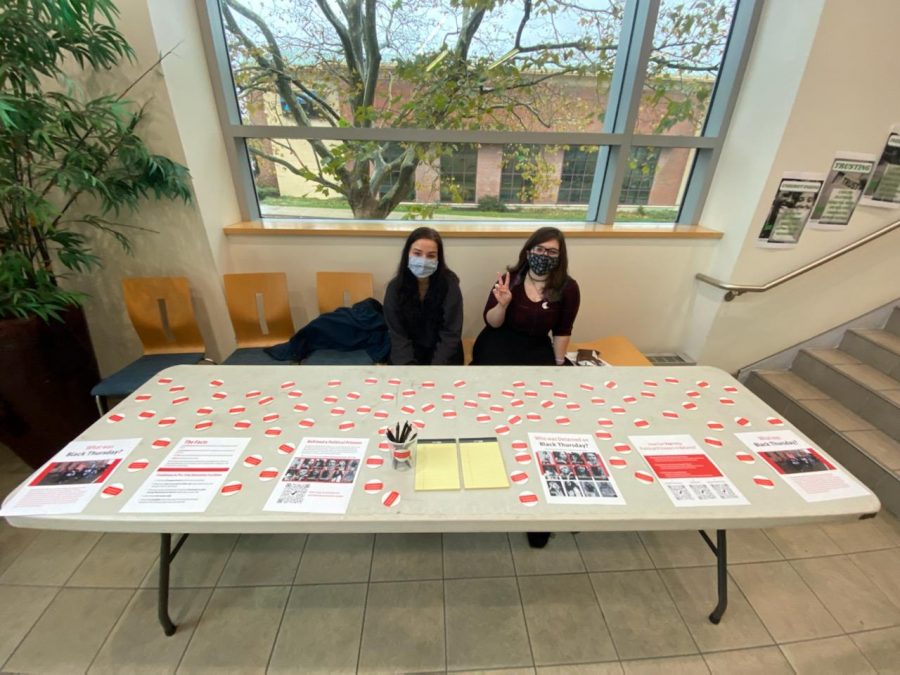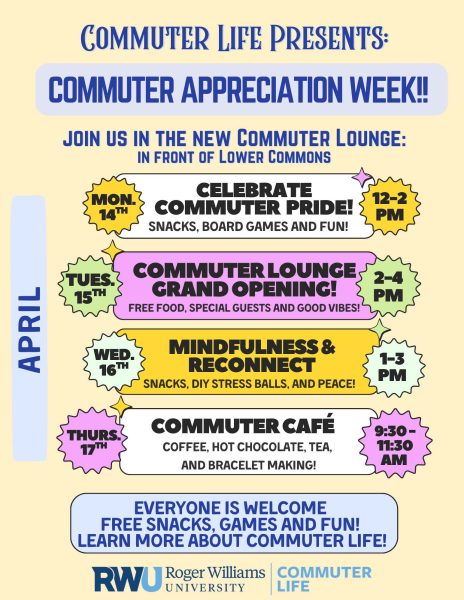“I am the Last Dictator in Europe”
Students advocated for political prisoners in Belarus
Courtesy of Eliana Greenstein Himle
Sophia Hess, left and Sophie Speliopoulos, right, at a table time on Friday, Nov. 12 for their Human Rights Advocacy Seminar.
This semester there is a course called Honors 300 Community Engagement Seminar that is being taught by Dr. Robert Cole. There are two advocacy groups in this course. One group is advocating on behalf of Patrick George Zaki who is detained in Egypt while the other group is advocating on behalf of political prisoners in Belarus.
Since August 2020, authorities in Belarus have arrested a growing number of students in retaliation for their nonviolent participation in protests across the country over the re-election of President Alexander Lukashenko. Many of the protests were organized by students or took place at university campuses. Authorities have arrested students during protests and targeted house raids of student leaders, including members of the Belarusian Students Association. As of today, there are 24 students, 8 teachers, and 5 scholars who are currently political prisoners in Belarus.
In a 2012 interview, the Belarussian President Alexander Lukashenko said “I am the last and only dictator in Europe.” Lukashenko was the first democratically elected president of Belarus in 1994, and according to the Belarus constitution when he was first elected, he was only allowed to serve for two terms of five years each. Since then he has changed the constitution to allow him to run as many times as he wants and has remained president since 1994. In every election Lushenko has won there have been widespread allegations of election fraud. In the most recent election in 2020, there have been widespread protests against Lushenko and the government. Numerous other countries have not accepted the results of this election as well as the European Union.
The group advocating for Belarussians met with Ala Sivets, a researcher and human rights activist working for Politzek. According to her research, over 35,000 people have been detained since the protests began after the 2020 election, 4,644 people have been tortured or ill-treated by security forces, and there have been 4,700 politically motivated criminal cases. The prisoners are forced to live in horrible conditions. They are only allowed to shower once a week, the rooms they live in are very overcrowded, and there is no sunlight because the windows are boarded up. In those rooms, there’s only 1 toilet per room if that, and those toilets have little to no privacy. The prisoners are not allowed to leave their room and they suffer from many physical and mental health issues.
The goals of the group are to help raise awareness for the political prisoner scholars of Belarus. Some ways people can help are by posting on social media with #FreeStudents or by following @ScholarsInPrisonRWU on Instagram. Another way to help is by “friending a prisoner” at Politzek.me. Through this program, people can learn more about each individual person imprisoned and send them letters or items they may need while imprisoned. If people stay silent then nothing will be done for these people and they will remain in prison while a self-admitted dictator remains in power.





